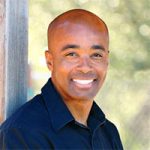
Barry Franklin
Forensic nurses are a vital source for civil and criminal investigations. Trained in both health care and law, these specialized nurses provide care to victims of traumatic crime cases while simultaneously obtaining vital medical evidence that can be used later in the civil and criminal courts. Forensic nurses typically work in collaborative environments such as hospitals, jails, and correction departments. From the treatment of abused child victims to studying sexual assault, students who are interested in expanding their health care knowledge in forensic nursing have various specializations to consider as their focus. In order to help understand the various paths in this specialized industry, we have outlined a list of top forensic nursing professors who have spearheaded the growth of forensic nursing careers nationwide. These professional advocates encourage further discussions among the forensic nursing community to continue the efficient synthesis of health care in the criminal justice system.

A prolific forensic nursing professor, Dr. Zoucha has contributed a chapter "The Utility of Leininger’s Culture Care Theory with Vulnerable Populations" in de Chesnay (3rd ed.) Caring for the Vulnerable: Perspectives in Nursing Theory, Practice, and Research (2102). The book was awarded the American Journal of Nursing Book of the Year Award in 2012.He has also received the Leininger Award from the Transcultural Nursing Society (2008), as well as numerous grants for his work with multicultural forensic nursing.
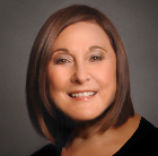
Dr. Sommers has served at the head of a number of high level forensic nursing organizations, including as the Chair of the Steering Committee for the Council for the Advancement of Nursing Science. She is known for her work with sexual assault victims and physical (cellular) responses to rape and molestation.
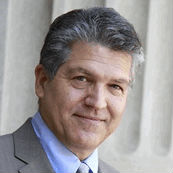
Dr. Edleson is the Dean of the School of Social Welfare at UC – Berkeley and an emeritus professor at the University of Minnesota. His current research focuses on child abuse and parental abduction in abuse cases.
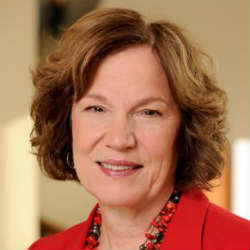
Dr. Campbell is highly recognized for her work with intimate spouse abuse, and developed and validated The Danger Assessment, which is a system for clinicians and nurses to assess the risk of mortal danger in an abusive situation.

Dr. Sharps has been recognized as an “emerging leader” at the Associated Black Charities’ Annual Fundraising Gala. Her expertise is in the effects of intimate partner abuse on pregnant women, young children and infants. She is the director of several nursing programs at John Hopkins School of Nursing and volunteers for many local organizations that serve abused women.

Dr. Laughon focuses her clinical and written work on the study of intimate spousal abuse, and has received numerous awards for her work. She currently serves as a board member of the Nursing Network on Violence Against Women, International (NNVAWI).

Dr. Koetting has training in child protection and forensic nursing, and has had extensive experience practicing as a primary care provider for at-risk populations of children.

Dr. Patton’s area of expertise is with child abuse and sexual assault victims. She is an active member of IAFC’s Education Committee and the President of the Forensic Nurse Certification Board. She has received numerous awards for her state-level forensic nursing work, including the Arkansas Nurses Distinguished Service Award.
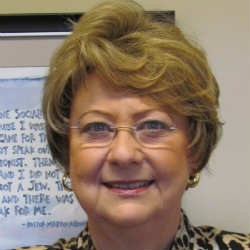
Dr. Hufft has achieved much success in personal career, and has received the official IAFN Achievement Award in 2000 for her excellence in forensic nursing. She was also recently appointed to the Georgia Board of Nursing, and is the current Director at Large for the United States division of the IAFN.consectetur

Dr. Sekula organized one of the first Master’s degree programs specifically for forensic nursing students. She received large federal grants to fund the programs and has made them some of the most popular in the world. Her work was recognized by the IAFN through the presentation of the Virginia Lynch Pioneer Award in 2007. She has also served as the President of the Forensic Nurse Certification Board.

Dr. Neill is the Associate Director for Graduate Studies at Idaho State University. She is also appointed on the Idaho Council on Domestic Violence and Victim Assistance (ICDVVA), and is the Chair of the Oversight of Domestic Violence Offender Intervention Programs and Standards Committee. In addition, she is the Associate Editor for the Journal of Forensic Nursing.

Achievement award IAFN Dr. Shelton is the Associate Dean of Research at West Virginia University and recently won an IAFN achievement award in 2012 for exceptional forensic nursing research relating to correctional health services. She is also an sought-after presenter and has given instruction at such conferences as the Biennial International Conference on the Nurse’s Role in the Criminal Justice System.
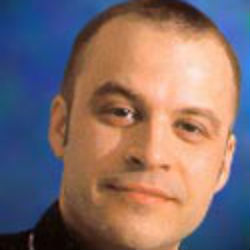
Professor Dave Holmes is the University of Ottawa Research Chair in Forensic Nursing. He has published over 110 articles in highly-rated peer-reviews journals, 35 book chapters and 4 books. He is also the Editor in Chief of Aporia: The Nursing Journal.

Dr. Sheridan has been an active part of the formative community in regards to forensic nursing. He received the Virginia A. Lynch Pioneer Award (IAFN) in 2002, and acted as a member of the Validation Panel of the National Association of Clinical Nurse Specialists to evaluate Dr. Sheridan has been an active part of the formative community in regards to forensic nursing. He received the Virginia A. Lynch Pioneer Award (IAFN) in 2002, and acted as a member of the Validation Panel of the National Association of Clinical Nurse Specialists to evaluate clinical nurse specialist education programs.

Dr. Peternelj-Taylor has received two achievements awards from the IAFN, one in 1998 and a Distinguished Fellow A in 2008. She is also the editor in chief of the Journal of Forensic Nursing.

Dr. Carter-Snell is a professor at Mount Royal University who offered the first online programs in forensic nursing in North America starting in the late 1990s. Dr Carter-Snell has become highly acclaimed for her clinical research in regards to victims of trauma and abuse. She received an IAFN Achievement Award in 2007 and the Research Dissertation Award through the Sigma Theta Tau Honor Society of Nursing in 2009.
When considering which forensic nursing professors were the best, we took a number of things into consideration:
Each of the forensic nursing professors on this list are actively engaged in teaching, lecturing and presenting for college and professional audiences at least on a yearly basis.
Only professors who made significant research and written contributions on a yearly basis to the growing field of forensic nursing were considered “top” professors.
All of the professors listed in this article are highly active in a number of professional nursing and forensic nursing organizations. Many of them are chairpersons and board members of these same organizations.
Forensic nursing professors who are heavily involved outside of academia were more highly considered than those with little community and volunteer engagement. Each of these professors is involved in at least one community program.
Many of our “top-rated” professors are considered innovators in the field of forensic nursing by a reputable journal or organization in the forensic nursing academic community.

Barry Franklin
Before co-founding Sechel Ventures Partners LLC, Barry Franklin was a VP at a Silicon Valley software company. He is an investor and advisor for DataSimply and Impellia. Barry believes that education and lifelong learning are paramount. Barry met his wife at Carnegie Mellon University and they have two beautiful daughters. He also volunteers for various committees at his kids’ high school.